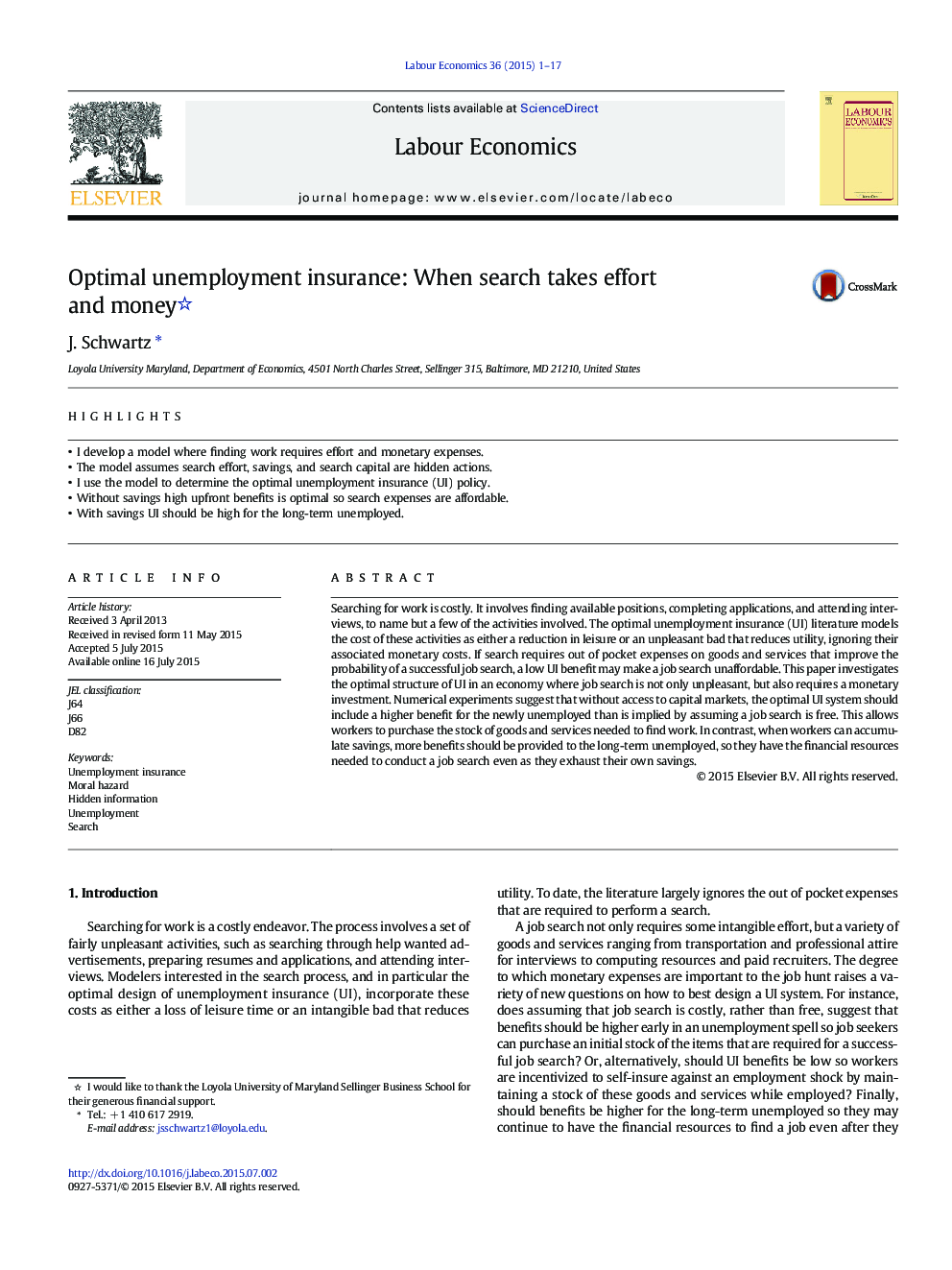| Article ID | Journal | Published Year | Pages | File Type |
|---|---|---|---|---|
| 972079 | Labour Economics | 2015 | 17 Pages |
•I develop a model where finding work requires effort and monetary expenses.•The model assumes search effort, savings, and search capital are hidden actions.•I use the model to determine the optimal unemployment insurance (UI) policy.•Without savings high upfront benefits is optimal so search expenses are affordable.•With savings UI should be high for the long-term unemployed.
Searching for work is costly. It involves finding available positions, completing applications, and attending interviews, to name but a few of the activities involved. The optimal unemployment insurance (UI) literature models the cost of these activities as either a reduction in leisure or an unpleasant bad that reduces utility, ignoring their associated monetary costs. If search requires out of pocket expenses on goods and services that improve the probability of a successful job search, a low UI benefit may make a job search unaffordable. This paper investigates the optimal structure of UI in an economy where job search is not only unpleasant, but also requires a monetary investment. Numerical experiments suggest that without access to capital markets, the optimal UI system should include a higher benefit for the newly unemployed than is implied by assuming a job search is free. This allows workers to purchase the stock of goods and services needed to find work. In contrast, when workers can accumulate savings, more benefits should be provided to the long-term unemployed, so they have the financial resources needed to conduct a job search even as they exhaust their own savings.
